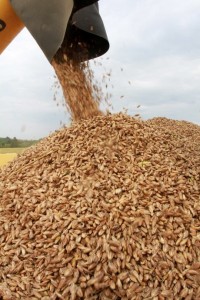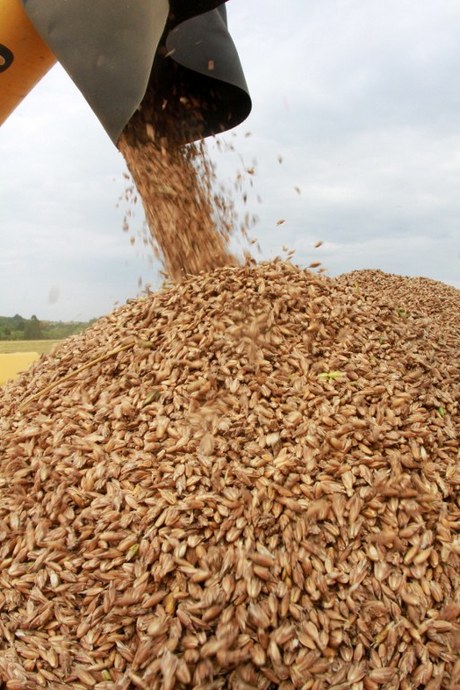
(AFP Photo/Petras Malukas)
By Evline Meshreky
The UN’s Food and Agriculture Organization (FAO) has forecast an increase in wheat production in 2014 both globally and in the Near East and North Africa (NENA) region, according to a press release issued by the entity on 3 July.
The estimated production in NENA for 2014 is 49m tons compared to 47.1m tons in 2013.
The expected increase in global and regional wheat production has already positively impacted the market, resulting in more affordable prices, the press release said. This has, consequently, encouraged utilisation and trade, and aided in replenishing the world stock.
The press release added that Egypt, however, is expected to witness a rise in local food prices as a result of the decrease in fuel subsidies and the seasonal rise in demand due to Ramadan.
“An increase in wheat production by 2m tons in the NENA region will not lead to a decrease in prices. The increase is too insignificant compared to the world production of wheat,” said Abdelsalam Gomaa, an agricultural economics professor at Cairo University.
In April, the annual food and beverage inflation rate in Egypt was estimated to register 17.52%.
Egypt is the world’s largest wheat importer. The press release stated that the forecasted cereal import requirement for the year 2013/2014 is 16.6m tons, which is about 20% higher than the previous year.
Gomaa contested this number, saying that Egypt consumes 15m tons and imports around 6m tons. He thus expects domestic productivity to rise “if we provide the proper necessities of production”.
Egypt is trying to increase its self-sufficiency and reduce its $4.5bn food import bill. The amount of wheat bought by the government from local farmers during this year’s harvest, however, is far lower than its initial target of 4.4m tons, reported Reuters.
“The government has purchased the same amount of domestic wheat this year as last year, 3.7m tons,” said Tarek Hassanein, head of chamber of cereals and its products.
“On the other hand, the government is expecting a decrease in consumption of subsidised bread by 20% to 25% after the introduction of the smart-card system. This will consequently decrease our consumption of wheat by 2m tons,” he added.
The smartcard system limits the consumption of individuals to a certain number of local bread loaves per month, and is slated to be implemented in July.
END
Keywords: Daily News, Daily News Egypt, DNE, Egypt, agriculture, FAO, business, subsidies, bread, smart card system, wheat, inflation




